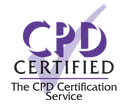
Learn the basics of
Photography
Our expert-led photography classes will give you the skills you need to become a professional photographer, with complete training from beginner to advanced photography techniques.
3,006,450
Graduates
All levels
Certified

Course details
MODULE 1
Diploma in Photography
MODULE 1
Diploma in Photography
1.Getting Started — What do you want to shoot?
This class begins with an overview of photography in the modern era. Good photography comes from inspiration; this will get you thinking about what you can do with photography, new areas to explore, and how to get familiar with camera types.
2.Camera Basics — Start taking control
Start making sense of camera terminology and the various modes on cameras. Get familiar with what cameras can do and how to make the most of yours so you can enjoy your photography quickly.
3.Your view of the world through your camera
Explore different lens types, get to understand focal length, and how to get the most out of your current set up in Lesson 3.
4.Composition — Start seeing as a photographer
In this photography class, you will learn how to improve photos instantly by gaining a basic understanding of composition and ideas on what to look out for.
5.Shutter Speeds — Adding dynamic movement to your photography
Discover what shutter speeds are and how to use them creatively to capture motion — an important step to full control.
6.Apertures — Controlling light and depth
Lesson 6 will teach you what exactly apertures are and how to use them effectively to create depth — the next step to full control.
7.Good exposure and the light meter
What is exposure and how does the camera measure light? In this photography lesson, you will learn how to snap the perfect picture every time. No more photos that are too dark or too bright!
8.Manual Mode — Take complete control
In the last photography class of this module, you will put together everything you’ve learned previously to take full creative and technical control. Getting to fully manual is only the beginning, but it is the key to unlock your potential as a photographer.
MODULE 2
Intermediate in Photography
MODULE 2
Intermediate in Photography
1.Capturing better portraits
In this photography lesson, you will learn about the camera’s histogram and why this is an essential tool for getting the correct exposure in any lighting condition. The beauty of this knowledge is that you won’t even have to look at the image on the screen to know that you have the right exposure.
2.Shooting landscapes
This photography class takes your abilities to refine and control exposure even further. It will look at how spot metering can be used to meter different tones within your image, to identify how much light is being reflected from a variety of subjects and tones, and create the best exposure in any situation. Advanced knowledge of the tones in your scene will ensure that you will always create accurate and consistent images.
3.Importance of colour
Having the skills and ability to use flash lighting in your photography is as important as being able to work with natural light. In this class, you will look at all of the various uses of flash in photography.
4.Seeing in black and white
In this lesson, you will look at how light can be shaped and manipulated to give you much more control over how your subject is represented. You will look at different styles of lighting commonly used in studio photography and the correct setups to achieve them.
5.Photography in lowlight and at night
Put that tripod to work and get out at night for new opportunities and learn how to paint with light. Night time photography yields very impressive photos when done correctly!
6.Macro photography — get closer!
Get closer and see things differently. Exploring all the creative possibilities with Macro, and some of the technical stuff too.
7.Food photography — photos good enough to eat!
What tastes delicious and looks delicious are 2 very different things. Learn how to make your food look as good as it tastes!
8.Photographing wildlife
You don’t need to go far to capture get shots of animals. This lesson will help you capture stunning wildlife shots in your back garden or the Serengeti.
MODULE 3
Advanced in Photography
MODULE 3
Advanced in Photography
1.Histograms: Measuring tones and exposure
Helping you to ensure that exposures are always correct, histograms are far more reliable than your LCD screen. Avoid nasty surprises with the Histogram.
2.Metering modes - change how you see light
Read light in new ways and always know how to make the most of the light you have available. Cameras have multiple ways to read light, learn how to use them in this lesson.
3.Lens Filters - A Guide
We can add filters to our lenses for all types of creative purposes. This lesson will explore the most popular and how to use them.
4.HDR Photography
Go beyond the limits of exposure with HDR photography. Learn the best approach to HDR capturing and how to use it successfully.
5.Flash Photography Part 1
Sometimes the light we have available is not enough. This is when we need flash. This tool can be daunting but mastering it will open new opportunities to you both commercially and personally.
6.Flash Photography Part 2
There is so much we can do with flash, it will get you out off tricky situations but is a powerful creative tool in its own right. Learn what yours can do in this lesson.
7.Studio Lighting Part 1
No longer is studio restricted to pros. Studios can be setup on a shoestring budget and is a gateway into making money with your photos. These lessons will help get you started.
8.Studio Lighting Part 2
Some of the most fun you can have with photography is in the studio. With our studio ready to get we can get creative!
MODULE 4
Proficient in Photography
MODULE 4
Proficient in Photography
1.Basic editing: taking your photography further
Time to look at the standard, essential tweaks we need to make to our shots to get them looking the way we want them.
2.Adjustment tools: target perfection
Is there a tricky part of the photo to work on? These tools will help you pinpoint edits without affecting the rest of the photo.
3.Editing for landscapes
Get the most from your landscapes and develop your style.
4.Editing for portraits
Make sure your models are looking picture perfect every time!
5.Colour and Black and white editing
Good Black and White editing is more than just the click of a button. Editing Black and White correctly will help you understand Tone and Colour more clearly.
6.HDR and panoramic creation
Have some fun with your photos. HDR will allow you to expand what the camera can capture. Panoramic will help you capture everything around you!
7.Lowlight photography editing
Learn how to get rid of noise and advanced techniques to reveal all the stars in the night sky!
8.Creating a portfolio: a critical eye on your work
You now have the skills necessary to create work you can be proud to show. Putting it together correctly is as important as all the work that has come before, this lesson is the perfect jumping point for your next steps in your photography!
